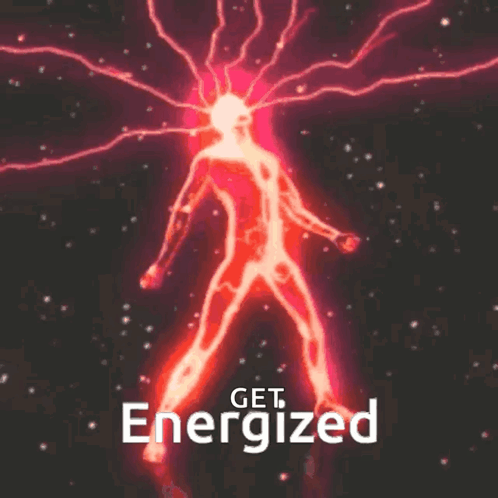How to overcome professional burnout syndrome and gain new strength
-
Svetlana Sibiryak
Copywriter Elbuz
You may be sitting at your desk right now wondering: What happened to my passion for work? Where has that passion gone, that energy that used to push you to achieve your goals? If you feel like burnout is starting to hit you like a cold wave, then read this article to the end. You don't need to guess what will happen next, I'll tell you 7 ways to overcome professional burnout and return to work with renewed vigor. This will help you regain confidence in your abilities and feel the fire inside you again.

Glossary
- Burnout syndrome: a state of psychological and emotional exhaustion resulting from prolonged and excessive work, which is accompanied by loss of interest and motivation.
- Burnout: a condition where a worker experiences excessive fatigue, disruption and emotional exhaustion due to a long period of emotionally demanding work.
- Too Much Work: A situation where a worker is overloaded with more tasks than he can effectively complete.
- Too close to heart: when an employee is too emotionally involved in his work and cannot separate personal feelings from professional ones.
- Working Too Long: A condition where a worker experiences fatigue and emotional exhaustion due to working long hours without adequate rest and relaxation.
- Experiencing an identity crisis: a period in life when a person rethinks his or her goals, values, and identity, which can cause psychological stress and dissatisfaction.
- Signs of professional burnout: certain symptoms and indicators that indicate the presence of professional burnout syndrome.
- You become indifferent: loss of interest in work and decreased motivation, which leads to indifference and apathy.
- Colleagues and clients enrage you: changes in attitude towards colleagues and clients, manifestation of negative emotions, irritability and aggression.
- You know you don't know anything: decreased confidence in your knowledge and professional skills resulting from professional depersonalization.
- You're not performing well: decreased productivity, quality of work, and efficiency in completing tasks.
- You're constantly on edge: persistent feelings of tension, anxiety, and stress related to work.
- Health problems appear: the occurrence of physical or psychological problems, such as chronic fatigue, insomnia, headaches, apathy and depression, due to professional burnout syndrome.
- Who's at risk?: Certain groups of people who are at particular risk of developing burnout, such as healthcare workers, social workers and teachers.
- Stages of professional burnout: various stages of development of the syndrome, including primary arousal, the phase of prolonged stress and the stage of chronic exhaustion.
- How to rise from the ashes: techniques and strategies to help workers overcome burnout and regain their energy, motivation and enthusiasm for work.
Recovery from professional burnout syndrome: my personal methods and recommendations
Professional burnout is a condition that many of us experience at work. Remember what we were like when we first started our careers. We were full of energy, ready to overcome anything and were passionate about our work. But over time, something changes, and inside us a feeling of fatigue, indifference and even despair is born. It’s as if we are burning out to the ground, and it’s time to be reborn again, like a phoenix from the ashes.
I would like to share with you seven effective strategies that helped me overcome professional burnout and return to work with renewed vigor and motivation. Below are my own ideas and approaches that I have used in my practice.

1. Reconsidering priorities and goals
First of all, I turned to myself and asked myself: what exactly do I want to achieve in my job? By rethinking my goals and priorities, I became clearer about what was truly important to me. This helped me restructure my attitude towards work and find new sources of motivation.
2. Finding internal sources of motivation
I noticed that there was a lack of internal motivation in my work. I thought about my passions and what truly inspires me. Then I began to actively incorporate these elements into my work. For example, if I have an interest in new technologies, then I apply them in my projects. It helps me feel more engaged and motivated.
3. Stress management and relaxation
Stress is one of the main causes of professional burnout. I realized that it was important to learn how to manage my stress and find time to relax. I began to take breaks in my schedule, exercise, and took up hobbies that bring me pleasure. Productive rest helps me cope with negative emotions and restore energy.

4. Skill development and self-development
I believe that self-development is key element in overcoming professional burnout. I constantly strive to learn and develop new skills. I participate in trainings and webinars, read books and study current materials in my field. This helps me stay up to date with the latest trends and feel confident in my knowledge.
5. Support and Collegiality
One of the most important parts of recovering from burnout is support from colleagues and management. I found people with whom I feel comfortable communicating and collaborating, and they have become a source of inspiration and support for me. Interaction with colleagues and a sense of teamwork helped me overcome feelings of isolation and return to work with renewed enthusiasm.
6. Separate your work and personal life
It is very important to learn to separate your work and personal life. I have started to set boundaries and strive to not take work home. I try to enjoy my time with family and friends to maintain a work-life balance. This approach helps me gain new strength and energy for work.

7. Flexible scheduling and breaks
To prevent burnout, I started scheduling my time more flexible. I take breaks between tasks and try to include time for rest and recovery in my schedule. Flexible scheduling allows me to use my time more efficiently and reduces the likelihood of being overwhelmed and overly tired.
These seven strategies helped me overcome burnout and return to work with renewed vigor and enthusiasm. I still use these techniques in my practice and encourage other professionals to use them to relieve stress and achieve success at work.
Life is not just work. Don't forget to take time for yourself, your interests and your loved ones. Remember that the most important thing is your happiness and well-being. Don't be afraid to change and try new things. You deserve a happy and successful career!
Note: This text is a description of my own methods and strategies that helped me overcome burnout syndrome. They may not be suitable for everyone, so it is important to tailor them to your needs and take into account individual preferences. Contact specialists and consultants if you experience serious problems in your work or personal life.

Too much work
More work , less rest is a recipe for stress
We live in an era of workaholics, and the more we work, the less time we devote to rest. Result? We are faced with endless stress and feelings of exhaustion. Have you heard the expression “work like a horse” more than once? This is exactly the kind of stress our psychological and physical reserves experience. A rhyme, a joke, but in fact this is a big problem that should not be ignored.
Many of us have the urge to simply disconnect from the source of constant stress and take a complete vacation to rest and recover. And this, of course, is good if after a rest we can return to work with new strength and enthusiasm. But what if this doesn't happen? What to do if the vacation period only further highlights the presence of professional burnout syndrome?
Why does this happen? The more we work, the less time we devote to ourselves, our hobbies and important rest. Immersion in work becomes our only priority, and the main goal is to achieve success. But when all the attention is focused only on work, our personal life and interests are pushed into the background. And someday there comes a moment when we realize that we have become strangers to ourselves.

How to cope with endless work and recover
So, how to overcome professional burnout syndrome and return to work with renewed vigor? Below I present to you seven effective strategies that have helped me in my personal practice:
Set Boundaries: Define clear framework for your work. Regularly set aside time for yourself, relaxation and enjoying life. Set a clear work schedule and stick to it. Find a balance between work and personal life.
Delegate responsibilities: Transfer some of your tasks and responsibilities to your deputies and employees. Don't be afraid to trust them with some of the work, this will help you reduce your workload and focus on the important things.
Make time for relaxation and recovery: Remember to take time for rest and relaxation. This could be a short break for a walk or a gentle workout at the gym. Find something that truly helps you relax and recover.
Manage your time: Divide your workday into shorter periods to prevent overwhelm and fatigue. Use time management techniques such as time management and task prioritization.
Seek Support: Don't hesitate to reach out to colleagues or management for support and assistance. This may be an opportunity for you to share your experiences and discuss your problems. This can help you find new approaches and solutions.
Find inspiration: Don't forget about your goals and dreams. Find inspiration and motivation in your work. Find your passion and channel it in the right direction. Sometimes we just don't have enough new challenges and new projects to get back on track.
Take care of your physical and emotional health: Health is our greatest asset. Remember to take time for your physical and emotional health. Eating well, being physically active, getting good sleep and having support from loved ones all play an important role in our ability to cope with stress and recover.
Feel free to incorporate these strategies into your practice. Experience shows that they are really effective and help overcome professional burnout syndrome. As mentioned, I'm sharing my personal stories and experiences with you, so I'm sure these strategies can help you too.
Remember that our health and our well-being are the main priorities in life. You should never forget about yourself and your needs. Burnout is a real problem, but we have ways to overcome it and find new energy and motivation for work.

Too close to the heart
When work becomes more than just work
In our fast-paced lives, where success and achievement often play an important role, work can become not just a way to earn money, but also a significant part of our existence. We get involved in it headlong, invest our energy and passion into it, often forgetting about ourselves, our interests and rest.
But what happens when our work stops being just a source of satisfaction and becomes a source of stress and depression? When every mistake or failure undermines our self-esteem and we feel powerless and disappointed.

Taking professional matters too seriously is a real trap. After all, as in relationships between people, in work it only takes one step from love to hate. When we become too attached to our work and accept it as part of our identity, we risk losing ourselves.
What to do if you feel that your work has long ceased to be enjoyable? It’s unpleasant for you to even think about it, and it only evokes negative emotions in you. This already suggests that you are close to professional burnout syndrome.
How to Maintain Distance and Balance
It's important to learn how to maintain a healthy distance from your work and not let it take over your life. Here are some strategies that can help you maintain emotional stability:
Assess your attitude: Question and reconsider your attitude towards work. Try to understand why she evokes such strong emotions in you. You may be overwhelmed or expect too much of yourself.
Find value outside of work: Discover new interests and passions outside of the work world. Find hobbies that give you pleasure and allow you to take your mind off your professional worries.
Rest regularly: Rest regularly and think about your physical and emotional fatigue. Don't take work home, take time for yourself and your loved ones.
Set Boundaries: Set clear boundaries between your work and personal life. Divide your time into work hours and rest time. Avoid overwork and overload.
Maintain Balance: Seek work-life balance. Don’t forget about your loved ones and friends, they are your support and helpers in difficult moments.
Each of us has our own strategies and methods for maintaining distance from work. The important thing is to find what works for you and actively apply it to your daily life. Remember to take time for yourself and your needs to maintain emotional stability and avoid burnout.
Working too long
When it becomes boring and uncomfortable
Developing and growing is an important part of our lives. Many psychologists and experts recommend changing your field of activity every five years to avoid stagnation and monotony. If we work in one place all our lives and do not change our field of activity, sooner or later we will feel that we are at a dead end.

When our work no longer brings us satisfaction, but becomes boring and repetitive, we start looking for a way out. We feel out of place and look for new challenges and opportunities.
Psychologists and experts also say that changing the field of activity may be the best solution in such cases. Sometimes we just need outside influence and new experiences.
How to find new challenges and move forward
If you feel that your job has not brought you satisfaction for a long time, start looking for a new field of activity. Here are some tips to help you move forward and find new challenges:
Assess your interests and passions: Take time for self-reflection. Determine what you are really interested in and what you would like to do. Pay attention to your passions and dreams.
Explore new areas: Explore new areas that pique your interest. The Internet and books offer a wealth of information about different professions and career paths. Develop yourself, learn new things and expand your horizons.
Gain new skills and knowledge: If you choose a new field of activity, pay attention to what skills and you need knowledge to master it. Invest in your growth and development, take courses and trainings.
Find New Opportunities: Look for new opportunities to use your skills and abilities. Look for work or projects in a new field of activity, participate in internships or volunteer programs.
Seek Help: If you are experiencing difficulties or are unsure about the correct path, seek help from to an expert or to a narrow circle of trusted people. They can help you make the right decision and give you valuable advice.
Remember that life is full of opportunities, and changing your career is one way to unlock your potential and find new strength and inspiration. Feel free to take a step towards change and discover new horizons.

Experiencing an identity crisis
When money and status are no longer so interesting
There comes a time in life when, having lost external justification for our existence, we begin to ask questions: why? Is it enough to have money, prestige and success to be happy? And what really brings us satisfaction and meaning in life?
Often a personality crisis overtakes us during middle age, when we are sufficiently financially secure and it seems that everything in life already exists. But what to do when everything material no longer brings joy and satisfaction?

How to find meaning and direction
If you feel like you are in crisis and are looking for new meaning in life, here are some tips to help you find your direction:
Assess your values: Define what is really important to you in life. What motivates you and brings you joy? It could be family, creativity, helping others, or personal growth.
Explore New Opportunities: Look for new opportunities for self-actualization and the search for meaning. Try new hobbies, interests, or volunteer programs. You may need to change careers or explore a new field to find your calling.
Find Inspiration: Look for inspiration around you - in art, music, literature or nature. Take part in various events and meetings that will help you discover your creativity and find your place in life.
Connect with experts: Seek help from psychologists, coaches and self-development experts. They will help you understand yourself, determine your goals and develop an action plan.
Show gratitude: Remember to appreciate what you already have in your life. Show gratitude for every day, every opportunity for growth and self-expression.
Don't be afraid to ask questions and find your own path. An identity crisis is a time of opportunity when we can rethink our lives and start moving in a direction that truly suits us. Be open to new opportunities and ready for change.

Stages of overcoming professional burnout syndrome
Signs of professional burnout
Burnout is such an insidious thing that it affects all areas of human activity. This is a depletion of emotions, mind, health - in many ways it is similar to depression. First of all, burnout affects the emotional sphere. He who has loved cannot love. You can't set fire to someone who's burned out. Apathy, indifference to what once attracted and pleased - these are the first bells.
You can try to motivate yourself - at first it works, then the motivation disappears. Then, if you do not pay attention to this, interest is lost not only in work, but also in ordinary life. Gradually, apathy spreads to all aspects of our existence, and it seems that joy is gone forever.

Overcoming indifference
If you feel that you are becoming indifferent to your work and life in general , it may be time to take action and start rebuilding your energy and enthusiasm. Here are some strategies to help you achieve this:
Analyze your goals. Remember why you started doing this work, what your goals were. Make a list of your values and make sure your current job aligns with them. If not, think about how to change the situation.
Change up your routine. Maybe your workday has become too predictable and monotonous. Try making some changes: start with a morning run or a new hobby after work. It is important to create new experiences and variety in your life.
Reach out to your colleagues. Share your feelings with those around you. Perhaps your colleagues also know the feeling of burnout, and they can help you in this situation. Create a supportive environment where problems can be discussed openly and solutions can be found.
Take time for yourself. Pursue your hobbies and get involved in new activities. This will help you take your mind off work and enjoy yourself. Don't forget about physical activity and good sleep - they play an important role in your overall sense of well-being.
Change the way you think about work. Set yourself new goals and objectives that will spark interest and inspiration. Try to approach work from a new perspective and look for positive aspects in it. Come up with your own system of incentives and rewards for work done.
Learn new things. Develop your skills and competencies to feel more confident in your work. Take courses, read books, attend seminars - all this will help you update your knowledge and gain new ideas.
It is important to remember that overcoming indifference takes time and effort. But if you consistently work on yourself and apply these strategies, you will eventually be able to regain the inspiration and energy to work again.
Note: Overcoming indifference can be a difficult process and you may need professional help. Do not hesitate to contact a psychologist or coach if you feel that you cannot cope on your own.

If you are interested in finding suppliers for your online store, I can recommend this article, which discusses in detail various methods of finding reliable and long-term supplier partners.
Best practices for overcoming indifference
| Helpful things to do | Don'ts |
|---|---|
| Learn new areas of knowledge and skills | Avoid excessive self-criticism |
| Develop your interests and hobbies | Isolation and alienation |
| Sports and physical activity | Excessive work and overload |
| Lead an active lifestyle | Avoid conflicts at work |
How to overcome burnout syndrome and find new energy in work
Burnout at work is a syndrome that people face many people, especially those who work in interaction with other people, run their own businesses, or are always self-critical. However, I can confidently say, based on my own experience and knowledge, that this syndrome can be overcome and you can return to work full of enthusiasm.
1. Rethinking and clarifying goals
Too much work and endless tasks can lead to a feeling of loss of meaning and purpose in work. It's important to rethink and clarify your goals so that they are inspiring and give meaning to your work. In my practice, I asked myself questions: “What exactly do I want to achieve in my work?” and “What goals will help me stay motivated?” As a result, I got a clear idea of where I am directing my efforts.
2. Finding support
Surround yourself with people who share your problems and are looking for solutions. Communicating with colleagues, involving experts in the field in analyzing and improving your business, and participating in professional communities will help you find support and inspiration. I have always believed that a cohesive team is the key to success and efficiency. One example of this can be found at here.

3. Separation of work from personal life
Preoccupation with work and lack of balance between work and personal life often leads to burnout. It is important to set boundaries and make time for yourself, your loved ones and hobbies. I tried to create a schedule where work and rest had a place, which helped me maintain energy and recover.
4. Healthy lifestyle
Physical and mental health play an important role in overcoming professional burnout syndrome. Regular exercise, a healthy diet and adequate rest will help you maintain energy and increase your resistance to stress. I myself took time to exercise, meditate and maintain a healthy diet.
5. Setting Boundaries
Learn to say no and set boundaries at work. Don't let yourself become a victim of the general onslaught of tasks and interruptions. I learned to prioritize tasks, delegate, and say “no” when necessary.
6. Develop New Skills and Interests
Invest time in developing new skills and interests, either related to your current job or something completely new . This will help you expand your horizons, restore energy and inspiration. Personally, I implemented this approach by exploring new technologies and areas related to my work.
7. Self-development and learning
See yourself as an eternal learner. Continue to educate yourself, learn new technologies and best practices in your field. This approach will help you grow professionally and maintain interest in your work. I have always strived to stay up to date with the latest trends and put them into practice.

Thus, overcoming professional burnout syndrome is possible if you actively work on yourself and your environment. I am confident that applying these strategies will help you find new strength and motivation. Don't forget that taking care of yourself and your well-being is not only the key to your success, but also caring for the quality of your work and personal life.
It is important to develop and improve, and I am convinced that everyone can learn to overcome burnout and return to work with renewed vigor and enthusiasm.
.jpg)
If you apply these tips in your life, I am sure that you will be able to overcome professional burnout syndrome and return to work with new strength and enthusiasm.
Ways to overcome professional burnout syndrome and return to work with renewed vigor
When I faced with professional burnout syndrome, my work stopped giving me pleasure. Instead of joy and enthusiasm, I felt tired and disappointed. But I didn't want to just accept this situation. I wanted to return to work with renewed vigor and become a happy professional like before.
In the process of struggling with professional burnout, I discovered several effective strategies that helped me correct the situation and restore my performance. Today I want to share these methods with you so that you can overcome professional burnout and fall in love with your job again.

1. Identify and understand the problem
The first step in overcoming burnout syndrome is awareness Problems. Admit that you are tired and frustrated. Ask yourself questions: what aspects of work cause you negative emotions? What stresses you out the most? What would you like to change? This will help you better understand and analyze the essence of the problem.
2. Restore your energy resources
The second strategy that helped me overcome burnout was to restore my energy resources. I started paying more attention to my health and well-being. I included physical activity in my daily routine, began to rest and sleep more. I also paid attention to my diet, tried to eat healthy foods and gave up bad habits. As a result, my energy resources were restored and I felt much better.
3. Set goals and plan your work
The third way I used to get back to work with enthusiasm was setting goals and planning my work. I took a step back and rethought my priorities. Determine what exactly you want to achieve in your work and break down your goals into small, achievable steps. Create an action plan and follow it. This will help you see your goals and successes clearly.
4. Learn to define your boundaries
The fourth strategy that helped me cope with burnout syndrome is to learn to define my boundaries. I realized that it is important to set boundaries in my work and personal life. Don't take on too much, learn to say no and delegate responsibility. Prioritize your tasks and take time to relax. By limiting your workload, you can conserve energy and avoid overwork.
.jpg)
5. Find sources of motivation
The fifth strategy I used to help me feel again motivation to work, - finding sources of inspiration. I started looking for new ideas and approaches in my field, studying examples of successful projects and communicating with motivated people. I also found a hobby that brought me joy and inspiration. All of this helped me build an emotional connection with my work and become interested in it again.
6. Seek support and exchange of experience
The sixth way that was important for overcoming professional burnout syndrome was seeking support and exchange of experience. I turned to colleagues and friends in search of advice and understanding. Sharing experiences with people who have gone through similar situations helped me see new opportunities and learn new strategies. It also gave me confidence that I am not alone in facing this problem.
7. Practice self-management
The seventh way that helped me return to work with renewed vigor is the practice of self-management. I began to pay attention to my thoughts and emotions, learned to think positively and manage my condition. Find out what stress management and relaxation strategies work for you and practice them regularly. This will help you maintain energy and emotional stability throughout the workday.

Review of best practices
| Best Practices | Failed Approaches |
|---|---|
| Understanding the Problem | Ignoring problems |
| Restoring resources | Ignoring your own well-being |
| Setting goals and planning work | Uncertainty and chaos |
| Setting boundaries | Overwork and overwork |
| Finding sources of motivation | Lack of interest in work |
| Support and exchange of experience | Lack of support |
| Self-Management Practice | Negative Thinking and Emotions |
Using these strategies, I was able to overcome professional burnout and return to work with renewed vigor. I believe they can help you too. Don't put up with fatigue and disappointment, take action!
How I overcame professional burnout syndrome and returned to work with renewed vigor
In this chapter I want to share with I would like to share with you my story about how I dealt with professional burnout and recovered, returning to work with new energy and enthusiasm. If you feel like you're on the verge of burnout, my tips can help you turn things around and find joy in work again.
Awareness and acceptance of the situation is the first step. You are not alone in this, and many professionals experience burnout. It is important to realize that this is a normal reaction and accept it without regret or self-deprecation. Don't expect everything to resolve itself. Instead, decide what to do next.

When you feel the first signs of burnout and don’t want to radically change your activities, I recommend looking for new facets in your usual work. You can sign up for professional training or find a coach you trust. Expand the range of your online store, attract a new target audience or find new partners. The possibilities are endless, and life will become more interesting and fulfilling.
If your financial situation allows, consider scaling your business. If burnout has occurred in your area of activity, it’s time to change something. Study the market, look at business niches that interest you. Perhaps you already have reliable partners or potential associates. Previously, you could only look at these niches, but now your soul will pull you in a certain direction.
The important thing to understand here is that you don't have to sell your old business. You can hand it over to management and then dive headfirst into a new project. Focus on what brings you joy and satisfaction.
If you feel that professional burnout syndrome has affected your personality and character, you have become irritable and have lost interest in life, then perhaps you should consult a psychologist. A visit to a specialist should not cause any embarrassment or doubt. This will help you deal with your own thoughts and emotions, restore harmony and return to work with renewed vigor.
In conclusion, I would like to share professional recommendations that helped me recover from burnout syndrome:
- Be aware of your situation and accept it without regrets.
- Look for new facets in your usual work.
- Expand your business and explore new niches.
- Contact a psychologist if you feel irritated and lose interest in life.
I hope that my recommendations will be of help and inspiration to you. I am confident that with willpower and the right strategies, you can overcome professional burnout and return to work with renewed vigor and enthusiasm.

Putting your whole soul into your work is commendable, but it must be remembered that health and well-being have their place in your life. Remember that self-care and being in tune with yourself are key aspects of a successful and satisfying job.
I hope that my story and recommendations will help you overcome burnout. Believe in yourself, don't be afraid of change and open yourself to new opportunities. Good luck on your path to harmony and joy in work!
Frequently asked questions on the topic “How to overcome professional burnout syndrome and gain new strength”
- 1. What is professional burnout syndrome?
- Burnout syndrome is a state of emotional, physical and mental exhaustion that is usually associated with prolonged periods of stress at work.
- 2. Why do we burn out?
- Burnout can be caused by a variety of factors, including high workload, insufficient opportunities for rest and recovery, unsuitable work environment and lack of motivation.
- 3. How much work is considered too much?
- The amount of work that can become too much depends on each person's individual preferences and abilities. However, if you feel like you can't cope with your responsibilities and are constantly overwhelmed, you may have an excessive amount of work accumulated.
- 4. How “close to the heart” should you take your work?
- Investing emotional energy in your work is important, but it's also important to learn how to find a work-life balance to avoid overwork and burnout.
- 5. How long can you work without a break?
- There is no specific time or frame after which work becomes harmful. However, taking regular breaks and vacations throughout the workday and year is essential to maintaining productivity and preventing burnout.
- 6. How to deal with an identity crisis at work?
- To overcome an identity crisis, you need to conduct introspection, determine your values and set new professional goals. It is also important to discuss your feelings with loved ones or professionals who can provide the necessary support and assistance.
- 7. What are the signs of professional burnout?
- Signs of burnout can include disinterest in work, irritability towards colleagues and clients, decreased productivity, constant feelings of tension and health problems.
- 8. Who is at risk of developing professional burnout syndrome?
- People working in professions associated with a high degree of stress, such as medicine, education, management, law, are at risk of developing professional burnout syndrome . Also, those who are dissatisfied with their work or have insufficient control over the work process are susceptible to this syndrome.
- 9. What stages of professional burnout can be identified?
- Professional burnout develops in several stages: the preliminary phase, the symptom phase, the crisis phase and the chronic phase. Each stage has its own unique characteristics and requires appropriate steps to overcome.
- 10. How to be reborn from the ashes and return to work with renewed vigor?
- To recover from burnout, it is important to take time for your physical and emotional health, find hobbies and interests outside of work, create a balanced work and rest schedule, and Seek professional help if necessary.
Thanks for reading! I believe that you are now an expert in combating burnout syndrome
🎉 Congratulations! You have just read an article that can completely change your life and give you new strength and enthusiasm for work. You have overcome professional burnout syndrome and are now ready to quickly return to the world of business success!
🔥 Like a true hero, you've mastered seven powerful techniques for overcoming burnout and now know exactly how to face the new work day with enthusiasm and inspiration. Your knowledge and experience will allow you to avoid falling into the burnout trap in the future.
🌟 You are already a professional in this field. And besides this, you have the opportunity to share your new experience and knowledge with others. So why stop at achieving only your own success when you can help other people improve their lives?
🙌 Don't forget to share this article with your colleagues, friends and loved ones. Let them also become real heroes and find new opportunities and energy in their work. Let your integrity and enthusiasm spread around you, creating a magnificent vortex of positive change.
📝 Leave your comment below and share your thoughts. I'd be interested to hear how this material has impacted your life and work. I will be waiting for your success stories and new important discoveries!
Thank you for being with me!

- Glossary
- Recovery from professional burnout syndrome: my personal methods and recommendations
- Too much work
- Too close to the heart
- Working too long
- Experiencing an identity crisis
- Stages of overcoming professional burnout syndrome
- How to overcome burnout syndrome and find new energy in work
- Ways to overcome professional burnout syndrome and return to work with renewed vigor
- How I overcame professional burnout syndrome and returned to work with renewed vigor
- Frequently asked questions on the topic “How to overcome professional burnout syndrome and gain new strength”
- Thanks for reading! I believe that you are now an expert in combating burnout syndrome
Article Target
Providing real, actionable recommendations for recovery from burnout syndrome
Target audience
Professionals experiencing burnout at work, HR specialists
Hashtags
Save a link to this article
Svetlana Sibiryak
Copywriter ElbuzThe magic of words in the symphony of online store automation. Join my guiding text course into the world of effective online business!
Discussion of the topic – How to overcome professional burnout syndrome and gain new strength
An article about methods of overcoming professional burnout syndrome and returning to work with enthusiasm.
Latest comments
9 comments
Write a comment
Your email address will not be published. Required fields are checked *













.jpg)










Alice
Interesting article! I have found that exercise helps me combat stress and fatigue. Regular yoga classes or walks in the fresh air revitalize me and inspire me to new successes.
Liam
I agree with you, Alice! Physical activity is indeed very important to combat burnout. I prefer to exercise every morning and it helps me start the day with energy and a positive attitude.
Sophie
Another way to combat professional burnout syndrome is to lead a healthy lifestyle. Eating well and getting enough sleep also helps me be more productive and focused at work.
Emma
I agree with you, Sofia! I also notice that when I eat healthy, I feel more energetic and motivated. Any specific foods or recipes you can recommend?
Oliver
Hi all! I think one of the key factors in overcoming burnout is having a hobby or interests outside of work. For me personally, it's playing the guitar. She helps me relax and take my mind off work problems.
Leo
Oliver, I agree one hundred percent! For me, for example, it’s drawing and reading books. These are wonderful ways to relax and restore energy after a busy day at work.
Eva
I want to add one more way - communication with loved ones. Chatting with friends or family in the evening after work helps me relax and take my mind off work problems. What else does someone do to get back to work with renewed vigor?
Noah
Hello Eva! Over a cup of coffee or tea, I immerse myself in reading news or articles on topics that interest me. It activates my mind and gives me motivation to work.
Grumpy
Phew, all this advice about exercise, nutrition and all this nonsense... I will say this, there is only one way to overcome professional burnout syndrome - to retire. Everything else is nonsense and self-deception!